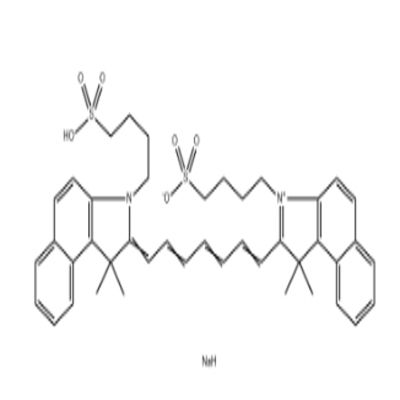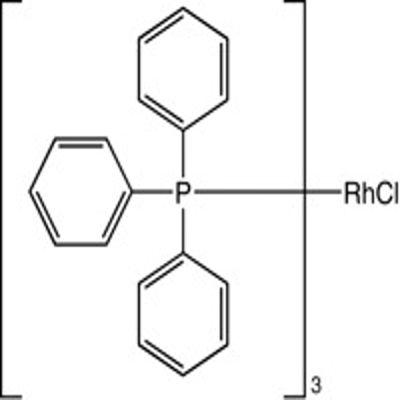China's new drug approval report in 2019: steady progress, medium improvement
-
Last Update: 2020-02-17
-
Source: Internet
-
Author: User
Search more information of high quality chemicals, good prices and reliable suppliers, visit
www.echemi.com
Since 2016, the state began to speed up the approval of new drugs, more than 40 new drugs have been approved every year In 2019, 60 new drugs were approved in China for the first time, including 4 traditional Chinese medicines and 56 Western medicines, including 43 imported drugs and 13 domestic drugs In this report, the above 56 drugs are taken as the analysis base According to who ATC classification, the number of anti-tumor and immunomodulators ranked first, with a total of 18 Since the establishment of the National Drug Administration (nmpa) in March 2018, it has been seeking various measures to speed up the entry of new drugs into China It has been the strategic goal of relevant departments to shorten the time difference between domestic and foreign markets of innovative drugs and accelerate their market access in China In 2018, the first approval time of imported drugs in China is 6.25 years later than that of the International (US, EU, Japan) on average (median 4.2 years), while the average lag time in 2019 is 5.55 years (median 4.63 years, see Table 1) China has made a lot of efforts to shorten the time gap of new drugs on the market Internationally, 14 new drugs approved after 2017 were approved in 2019 .. Compared with 2018, the drugs approved for marketing in 2019 began to spread to a wider range of treatment fields, mainly reflected in the change of treatment mode (such as PD-1 immunosuppressant, psoriasis drugs), drug update (such as COPD), etc (see Table 3 in the full report for details) In 2018, nmpa approved four PD-1 immunosuppressants, and in 2019, another three (including PD-L1 immunosuppressants) were approved NSCLC indications have been sought after by the first tier PD-1 immunosuppressants As the first PD-1 antibody to enter the Chinese market, Bristol Myers Guibao odiwo won the second-line treatment of NSCLC after being approved for the first time The second to enter the Chinese market is mosadoncorida (pabolizumab), which was first approved for melanoma in 2018 In 2019, it was approved with three NSCLC indications: ① combination chemotherapy for the first-line treatment of non squamous NSCLC; ② single drug first-line treatment of NSCLC; and ③ combination chemotherapy for the first-line treatment of metastatic squamous NSCLC As the first McAb of PD-L1 in China, AstraZeneca yingfeifan (approved in 2019) occupies a unique stage III non-small cell lung cancer (NSCLC) indication Three domestic PD-1 antibodies, carrelizumab from Hengrui, tirelizumab from Baiji, and Dabusu from Cinda biology, were concentrated in the lymphoma market (sindelimab, approved in 2018) Dabushu became the only PD-1 monoclonal antibody to enter the national health insurance catalog in the health care negotiations in November 2019, which limited the second-line treatment of classic Hodgkin's lymphoma Many candidate drugs of PD-1 monoclonal antibody in domestic enterprises are also carrying out NSCLC related research, including the recent phase III clinical trial of Xinda bio Dabusu combined with pemetrexed in the first-line treatment of NSCLC to reach the preset end point In addition, PD-1 / L1 immunosuppressant is also exploring the possibility of other tumors, such as Fuhong Hanlin's hlx10, which is still in the research of hepatitis B indications In China, PD-1 / L1 immunosuppressants have formed a certain scale, providing more choices for clinical tumor immunotherapy For a long time, drug developers have not paid enough attention to the field of autoimmune diseases in China, and this impasse has been improved with two major initiatives On the one hand, the new treatment plan was approved In March 2019, Novartis interleukin (IL-17A) inhibitor Ke Shanting, Lilly's IL-17A inhibitor Tuozi, and Xi'an Janssen's first of its kind, IL-23 inhibitor tenor On the other hand, the classic drugs are covered by medical insurance, and sumeriab and rifliximab, inhibitors of tumor necrosis factor (TNF) α, are included in the medical insurance catalogue through negotiation As mentioned before, biological agents began to change the past deadlock which lagged behind the international situation For example, in 2019, three major IL inhibitors were launched in psoriasis patients, making the treatment of psoriasis move towards the era of biological agents In 2019, China approved two triple therapies for COPD: GlaxoSmithKline's quanzale (fluticasone, umabamide, vilantrol) and AstraZeneca's budigor aerosol (budesonide, glybromide, formoterol) Both drugs give priority to the Chinese market Quanzale entered China only two years after it was approved in the United States, while budigfurt first applied for listing in China, and finally China became the second country in the world to approve the drug after Japan This also reflects the considerable growth potential of the Chinese market When the new R & D mode of multinational enterprises in China is carried out, many multinational companies are optimistic about the trend of Chinese market According to the discussion at JP Morgan medical and health conference held in San Francisco recently, how to prioritize the market has become a key consideration for most senior executives For example, vas Narasimhan, CEO of Novartis, said that he planned to obtain 50 NDA in China in the next five years Bob Bradway of Amgen also predicted that 25% of the growth in the next 10 years would be driven by the Asian market Competition for resources around market access, patients, clinical trials and KOL has spawned a variety of innovative partnerships Recently, Boehringer Ingelheim announced a strategic plan called "China key", which included China in the global early clinical development project, and established a partnership with Shanghai Oriental Hospital to carry out early research on cancer Other multinationals also have deeper partnerships with hospitals and doctors in disease and translational medicine research Bristol Myers Squibb and MSD have launched funding to support clinicians in the field of cancer research As a group of doctors closest to patients' needs, it is necessary for them to participate in the whole process of drug development The cooperation of multinational enterprises is to provide doctors with the most advanced technology, and to participate in the research process of drug development and clinical solutions from the early stage, so as to bring results based on patients' specific clinical needs In the context of encouraging innovative drugs in China, similar cooperation will be further increased Appendix: report on the approval of new drugs in 2019 in China: progress in stability and improvement in quality in transformation contents: I Introduction 2、 China's new drug approval speed starts to catch up with the international process 3、 Approval of biological products to get rid of the past slow dilemma 4、 Priority review is becoming mainstream 5、 Drugs urgently needed in clinical
This article is an English version of an article which is originally in the Chinese language on echemi.com and is provided for information purposes only.
This website makes no representation or warranty of any kind, either expressed or implied, as to the accuracy, completeness ownership or reliability of
the article or any translations thereof. If you have any concerns or complaints relating to the article, please send an email, providing a detailed
description of the concern or complaint, to
service@echemi.com. A staff member will contact you within 5 working days. Once verified, infringing content
will be removed immediately.







